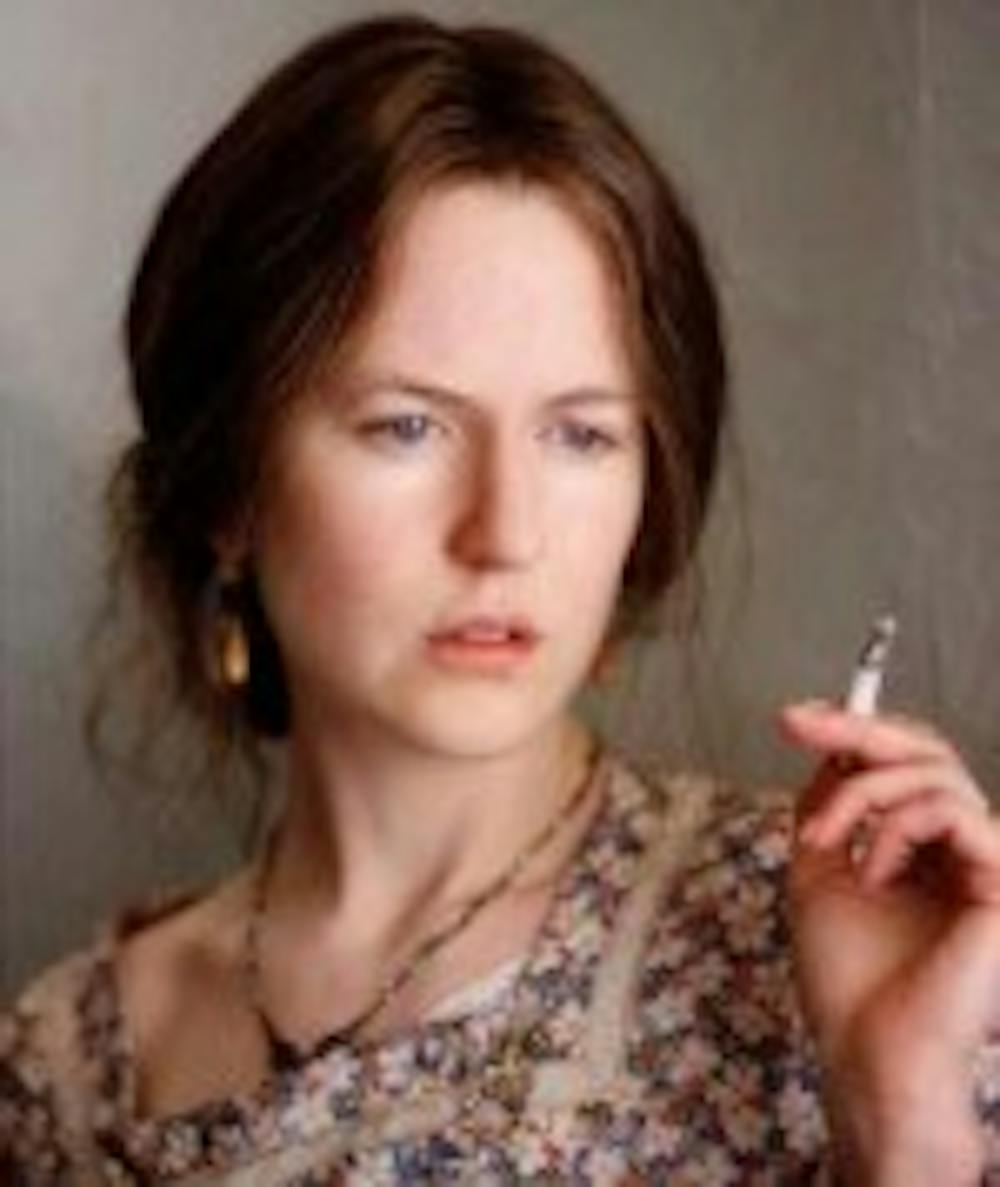"The Hours" starts with a suicide, and in terms of mood, the picture doesn't get any prettier. Despite the glamour of "The Hours'" A-list female cast, fronted by Meryl Streep, Julianne Moore and Nicole Kidman, this film is as pleasant as a wake.
But to use a cheesy rhyme, a sad film doesn't imply a bad film. "The Hours" is the kind of movie that ends up on critics' end-of-the-year top 10 list. Of all the films officially released last year, "The Hours" stands out as one of the most intelligent,
Since this is coming from the person that would rather see Ray Liotta pistol-whip Busta Rhymes in "Narc" than watch a movie where women talk an awful lot about their problems, this might sound like a meaningless recommendation. But "The Hours" will make anyone seem smarter after leaving the theater.
Here's why: director Stephen Daldry has accomplished a literary juggling act that would make English professors proud. He's working off of a screenplay by David Hare, adapted from a novel by Michael Cunningham, which is based on the life of author Virginia Woolf and her acclaimed novel, "Mrs. Dalloway."
Not to mention that on screen, he must portray the lives of three women - Virginia Woolf (Kidman), Laura Brown (Moore) and Clarissa Vaughan (Streep) - in three different time periods - 1923, 1951 and 2001. This is easier said than done. Whenever a filmmaker is forced to switch between distinct stories, he risks confusing the audience or losing their interest.
To top off the list of negative factors against a movie like "The Hours," the film is about, in the words of Virginia, "A woman's whole life. In one day. Just one day. And in that day, her whole life."
Now that sounds like an accomplishment, but the word Virginia declines to use before "whole life" is "everyday." One should ask himself or herself a day in his or her life is worth portraying on screen for the $25 million Miramax shelled out for "The Hours," and the answer is probably "no." Everyday life is anticlimactic and dull. That's why people go to the movies in the first place. These are the mundane tasks facing the film's heroines: Virginia has to write her future novel, "Mrs. Dalloway." Laura must bake a cake, and Clarissa has a party to plan.
To Daldry's credit, ordinary life becomes remarkably interesting in "The Hours" because his film takes Woolf's important literary motif and runs with it. Woolf's novels, while written in normal prose, are abnormal in style. She was known for popularizing stream of consciousness-style writing, where all the little thoughts and debates at conflict in a person's head are fleshed out in words.
Regarding Laura, Daldry takes an ordinary task - baking a cake - and makes it into a struggle between life and death, marriage and independence. While making it for her husband's birthday, an innocent question from her son Richie (Jack Rovello) asks how will daddy know mommy loves him if she doesn't cook? An everyday chat with Laura's neighbor Kitty (Golden Globe winner Toni Collette) presses the issue further:
"I don't think you can call yourself a woman until you're a mother," she says.
It's enough to start Laura down a road that endangers both her marriage and her will to live. Although Kidman won the Golden Globe, Moore has the standout performance. It isn't easy to portray a 1950's housewife without sliding into a June Cleaver-like caricature.
The other stories, although not as interesting as Laura's, are worthy in their own right. What is important is that they don't exist in a vacuum. Juxtaposing the stories, the women's lives resonate three-fold. Virginia, demanding to leave the suburbs of Richmond for London at the risk of destabilizing her already fragile mind, says to her husband, "Between Richmond and death, I choose death."
So a moviegoer will have a lot of death to think about when viewing "The Hours." And in some ways, this is how Daldry gets around making a dull film; suicide and death are extraordinary, not ordinary occurrences. This reviewer isn't smart enough to write about those issues, but rest assured, the delivery of such content is anything but boring.





